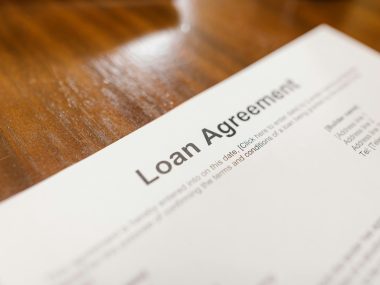Traversing the world of car loans can be as complex as hitting the road during rush hour. Understanding car loan interest rates is critical to ensuring you lock in the best deal, saving you money and stress. Let’s shift gears and accelerate our knowledge on what determines these rates and how you can potentially manoeuvre them to your advantage.
What Factors Determine the Interest Rate on My Car Loan?
When you apply for a car loan, lenders consider multiple parameters to set your interest rate.
Credit Score: The Financial Barometer
A primary factor, the mighty credit score dictates much of your financial journey. A higher score is seen as a beacon of reliability, potentially securing you those coveted lower interest rates.
Navigating Loan Terms
Loan terms are akin to the route you choose to travel: the longer the journey (or loan term), the more risks you may encounter. Lenders often mirror this with higher interest rates.
Down Payment: Your Financial Footprint
A larger down payment may be akin to a substantial first step that lowers your subsequent strides. It reduces the loan amount, potentially diminishing the interest rate as well.
Vehicle Age: The New vs. Used Dilemma
New cars sparkle with allure, not just for buyers but also for lenders. They generally attract lower interest rates than their older counterparts, owing to their higher resale value.
Market Conditions: The Economic Weather Report
Just like weather patterns, economic conditions and federal rates fluctuate, impacting car loan rates. Lower federal rates can lead to more favorable car loan conditions.
Examples of how these factors affect rates:
- A credit score of 720 might secure an interest rate of 3.5%, while a score of 630 could drive that rate up to 7%.
- A loan term of 36 months could offer a rate of 3.5%, whereas extending to 72 months might increase the rate to 5%.
- Putting down 20% versus 5% could mean a 1-2 percentage points difference in your rate.
- Financing a brand-new model might come with a promotional rate of 0.9%, compared to the standard 3.5% for used models.
- During a market downturn, loan rates could spike, reflecting increased lender caution.
These essential signposts mark your financial roadmap. Understanding each will better equip you for smooth negotiation down the path of car loan financing.
How Do I Find Out the Current Interest Rates for Car Loans?
Staying informed about the current car loan interest rates can be a game-changer when shopping for your dream vehicle.
Scouting the Best Rates
Your local banks or credit unions often provide valuable intel with their latest rates posted on their websites—your starting grid in the race for the best loan.
The Digital Rate Compass
Online aggregators like Bankrate and NerdWallet are the compasses in the wilderness of numbers, guiding you through the terrain of current car loan rates.
Direct Digital Inquiry
In the world of virtual finance, online lenders stand as islands of opportunity. Reach out directly to uncover what rates they offer.
Dealership Insights
Car dealerships could be the pit stops where you refuel with rate information, especially when they’re waving the flag of promotional financing events.
Financial Newsletters and Services
For the continuously curious, financial newsletters and market analysis services are the telescopes to the horizon of interest rate changes, including those for car loans.
Examples for rate discovery include:
- A visit to Chase Bank’s website might reveal a rate of 3.9% for well-qualified buyers.
- Bankrate’s comparison tool offers a glance at multiple rates, with some as low as 2.49%.
- Capital One’s online inquiry could present a surprise rate of 3.2%.
- During a dealership promotion, you might stumble upon a 0% financing offer.
- A newsletter like The Morning Brew often highlights financial trends, including rate fluctuation.
Equipped with these navigational tools, you can steer towards the most favorable current car loan rate and ensure you’re not overpaying on your next automotive investment.
Can I Negotiate the Interest Rate on a Car Loan with the Lender?
Many believe that car loan interest rates are set in stone, but the truth is they often have some wiggle room.
The Art of the Deal
Negotiating is more than just dialogue; it’s an art, and your canvas is your financial situation. With a strong credit background, you might just paint a masterpiece of a deal.
Shopping as Leverage
The principle of comparison shopping doubles as a persuasive brush in your quest for lower rates. Present competitive rates as a challenge for your lender to match.
Terms and Down Payments as Incentives
Offering a sizeable down payment or accepting a shorter loan term can be the incentives that sway lenders to sketch out a lower interest rate for your loan.
Research as Your Palette
Come to the negotiation table with a palette full of researched figures, and don’t hesitate to discuss the possibility of rate matching if you’ve discovered better offers.
Examples of negotiation tactics:
- Having an excellent credit rating could turn a proposed 5% rate into a more favorable 3.5%.
- Showing an offer of 3.5% from a competing lender might provoke your bank to match or beat it.
- Offering a 30% down payment could reduce your rate from 4.5% to 4%.
- Opting for a 48-month loan over a 72-month one might reduce your rate by half a percentage point.
In sum, your ability to negotiate car loan interest rates may vary. Still, armed with the right tools and knowledge, you can potentially sculpt a more appealing financial deal with your lender.
Is it Possible to Lower My Existing Car Loan Interest Rate After I’ve Taken Out the Loan?
Driving off the lot doesn’t mean you’re stuck with your existing car loan interest rate. If your financial landscape has improved, so might your rate.
Refinancing: The Road to Reduction
Refinancing is like choosing a more scenic route. If done correctly, it can lead to reduced rates and smaller monthly obligations.
Credit Improvement: A Green Light
Just as a red light turns to green, a noticeable improvement in your credit score might signal you to search for a better rate through refinancing.
Exploring New Lending Horizons
Brandishing multiple offers can place you in the driver’s seat, urging lenders to navigate toward more favorable terms to win your business.
The Power of Payment
Making extra payments or settling your loan early might not alter the rate but will cut down the overall interest, saving money in the long run.
Current Lender Negotiation
If your payment record is spotless and you’ve shown financial stability, your current lender might be willing to discuss lowering your rate.
Examples of lowering your rate:
- Refinancing your loan from 6% to 4% could save you hundreds over the life of your loan.
- A credit score boost from 650 to 720 might slash your rate through refinancing.
- An offer from an outside lender might push your current lender to match a 3.2% rate.
- Doubling your monthly payment could significantly reduce the total interest you pay.
Your existing car loan interest rate is not as unfixed as it may seem. You could potentially drive down your rate and enjoy a more cost-effective journey through strategic financial movements, such as refinancing and negotiation.
How Does My Credit Score Affect the Interest Rate I Receive on a Car Loan?
The axis on which your car loan interest rate spins is undoubtedly your credit score.
Higher Credit Score: Your Financial North Star
A stellar credit score not only brightens your borrowing outlook but can also lead to the discovery of preferential interest rates.
The Cost of Lower Scores
As the scores dip, the rates climb. Lenders view lower scores as a foggy path, fraught with the potential for late payments or defaults, and the rates reflect this risk.
Impact on the Total Cost
The influence of interest rates on the grand cost of your loan is undeniable; a good credit score can be the lighthouse guiding you to a less expensive purchase.
The Path to Good Credit
Fortifying your credit score is a journey of timely payments and debt management. It’s a path worth trekking, as it can lead to a landscape of better borrowing options.
Mitigating the Lower Score Effect
Shop around, haggle with lenders, and don’t consider the marked rates final. A lower score can sometimes be counterbalanced by negotiation and comparison.
Examples of credit score impact:
- A 740 score can translate to a prime rate of 3%, while a 680 might escalate that to 4.5%.
- Over a 60-month loan, a 1.5% difference in the rate could mean over a thousand dollars in extra costs.
- Timely credit card payments over a year can elevate your score enough to merit a rate reduction.
In conclusion, maintaining a compelling credit score is akin to keeping your vehicle in top condition; it ensures the best performance and the most beneficial long-term outcomes.
Steering Toward a Bright Financial Future
Understanding and navigating car loan interest rates is a journey filled with challenges and opportunities. Like a well-planned road trip, the more prepared and informed you are, the smoother the ride will be.
Your credit score is the compass guiding your voyage; caring for it will shine a light on the path to cost-saving loan terms.
Meanwhile, stay alert to the ever-changing market conditions and polish your negotiating skills. With the insights you’ve gained, your quest for an advantageous car loan can lead to a destination of financial satisfaction and prosperity.
Safe travels on your financial highway; remember, every turn toward lower interest rates is worth taking.






